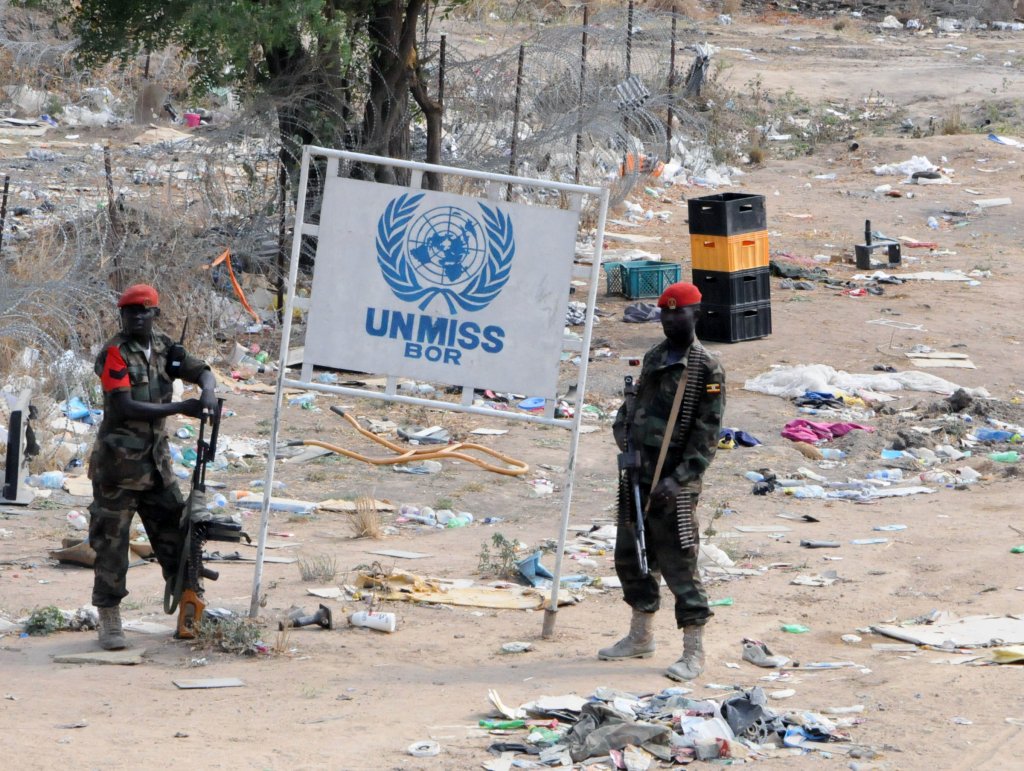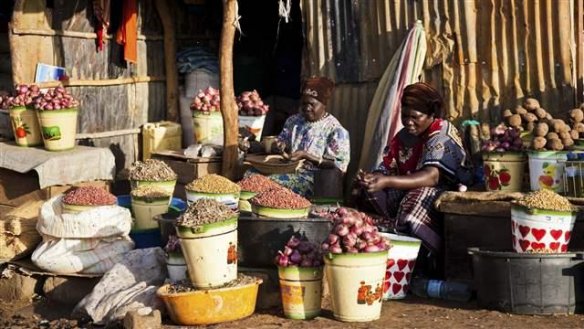Photo source: New Vision-Uganda, www.newvision.co.ug
The Government of Ugandan deployed the Ugandan People’s Defense Forces (UPDF) in South Sudan shortly after the outbreak of the third civil war on 15 December 2013. The intervention was instrumental in hindering further escalation of violence during the first weeks of the conflict, but now critical voices in Uganda ask how long the operation will last and what purpose it is currently serving. The UPDF’s presence is not only economically costly, but has also implications for Uganda’s role in the diplomatic debacle surrounding the attempts at ending the civil war.
The UPDF intervention
According to the Ugandan Ministry of Foreign Affairs UPDF intervened to secure Juba airport and to facilitate safe evacuation of Ugandan nationals. But, it soon became evident that the UPDF had a broader mandate. This included fighting the rebels in and around Bor, the capital of Jonglei, during late December 2013 and early January 2014. Controversial methods were used, including aerial bombardment and possibly cluster bombs. The UPDF fought alongside the government army, the SPLA, but the Ugandan intervention is attributed with halting attempted rebel advances south towards Juba.
Since then, the UPDF has provided the government in Juba with advisors and logistical support. A contingent of 3000 UPDF is present in South Sudan. Their main base is near Juba airport, but soldiers are also stationed in Bor and Nisitu and guard key infrastructure and the main trade route to UgandaJuba-Nimule highway. The size, location and mission parameters of Uganda’s special forces in South Sudan are however hidden in a nimbus of mystery. Media has recently reported that a UPDF helicopter gunship supported SPLA troops in deterring the SPLMiO rebels offensive against Melut, a key oil town 150 km north of Malakal. There are also unverified reports of downed gunships, one in Malakal and one in Melut. The UPDF deny any participation.
Initially, several regional and international actors involved in the effort to solve the conflict called for UPDF’s withdrawal and questioned the legality of the deployment and the unclear mandate and scope of the mission. However, most of them have later tacitly condoned the Ugandan intervention. The general perception of Uganda as a partial actor in the conflict has seemingly diminished Museveni’s role in in the IGAD peace process and it blocked Uganda from being one of the official mediators. The actual political cost is debatable, however, considering the general lack of progress within the IGADs negotiations.
Why has UPDF not gone home?
The official reason for UPDF’s continued presence in South Sudan is national security concerns. Politicians in the opposition use the UPDF deployment and the apparent lack of an exit strategy in their rhetoric against NRM and Museveni’s foreign policies. They voice dissatisfaction with the intervention in general, and especially its economic cost. Although the number of Ugandan soldiers killed or wounded in the intervention remains undisclosed, its human cost is also emphasised by the opposition.
To better understand what these national security concerns entail and the debate surrounding them, we recently interviewed several Ugandan politicians and civil society representatives. Some of those interviewed pointed to Uganda’s desire to prevent political and economic collapse in South Sudan; before the current war started, the neighbour to the north was Uganda’s most important trading partner.
Many attempt to divine hidden reasons behind the intervention and suggest that Museveni wants to maintain political dominance over South Sudan. He is supposedly concerned with what he perceives as Khartoum’s expanding influence over South Sudan. Several mentioned fear of Sudan’s facilitation of the return of the Lord’s Resistance Army (LRA) and its leader, Joseph Kony, to northern parts of Uganda. However, rather than the actual reason, some considered the possibility of Kony’s return as a pretext for Uganda’s engagement in South Sudan.
Supposedly Museveni strongly distrusts the SPLMiO leader Riek Machar, who, during the previous civil war, collaborated with the regime in Khartoum and with the LRA. According to this interpretation, Museveni therefore vetoes any negotiated solution to the conflict which could open up for Riek becoming the future president of South Sudan. More conspiratorial voices claim that the intervention is a ploy to keep strong generals busy abroad, and that the President and his family directly profit from contracts supplying the deployment. In Uganda, any mention of the economic affairs of the president’s extended family is, however, highly controversial and opinions are divulged only in discrete whispers.
Rising cost
Whatever President Museveni personally gains from the UPDF presence in South Sudan either economically or in terms of securing his position in domestic politics, is – if anything – a secondary objective. South Sudan is a key element in his strategy to maintain Uganda’s dominant position in the region. To keep Salva Kiir in power in Juba and thereby controlling the outcome – or lack of such – of negotiations to end the civil war has been a way to maintain South Sudan as a sphere of influence. But as South Sudan’s economy is rapidly disintegrating and as Salva’s power base shrinks, the political cost of this strategy is raising. By refusing to pressure Juba to commit to a negotiated peace, Uganda is seen as a spoiler in the peace process.
As the UPDF apparently becomes more deeply engaged in the military struggle on the ground, Uganda’s role as an outsider in the regional politics surrounding South Sudan is further entrenched. This week, IGAD, in practise Ethiopia, appointed Sudan’s President Omar al-Bashir as the new IGAD peace negotiation facilitator. Until now Sudan has had a self-imposed passive role in the IGAD process. It seems unlikely that this appointment will bring the process any close to a signed agreement: Sudan has deep vested interest in the process and is hardly seen as a neutral arbitrager. Considering its veto power and general influence over politics in South Sudan, Uganda’s disassociation from the process should be a source of concern; not only for Uganda which has little opportunity to shape the terms of proposed peace agreements, but also for any other external actor attempting to solve the conflict.

